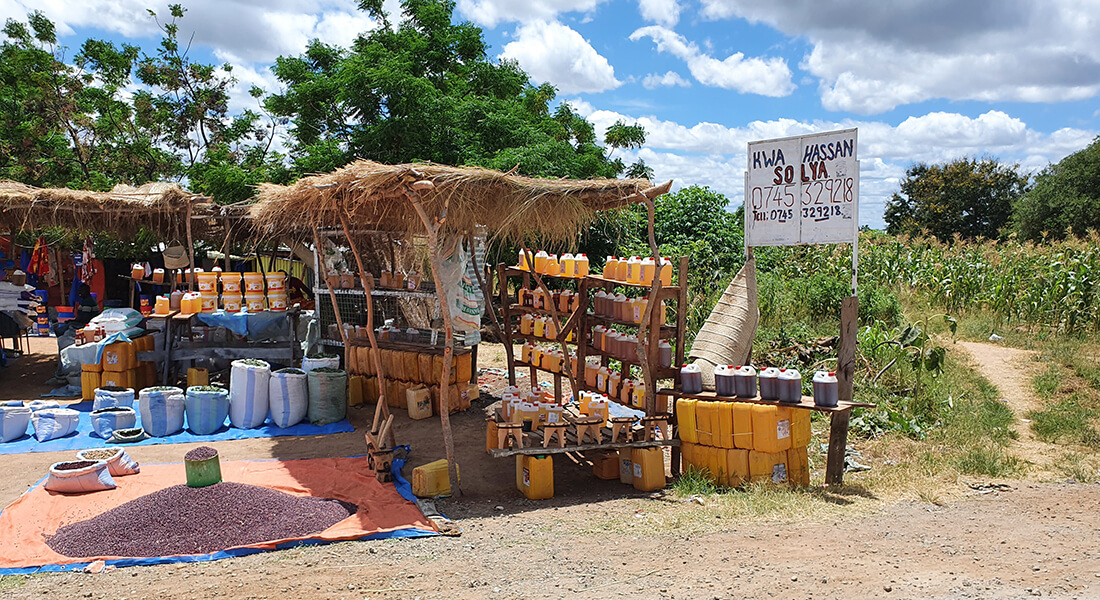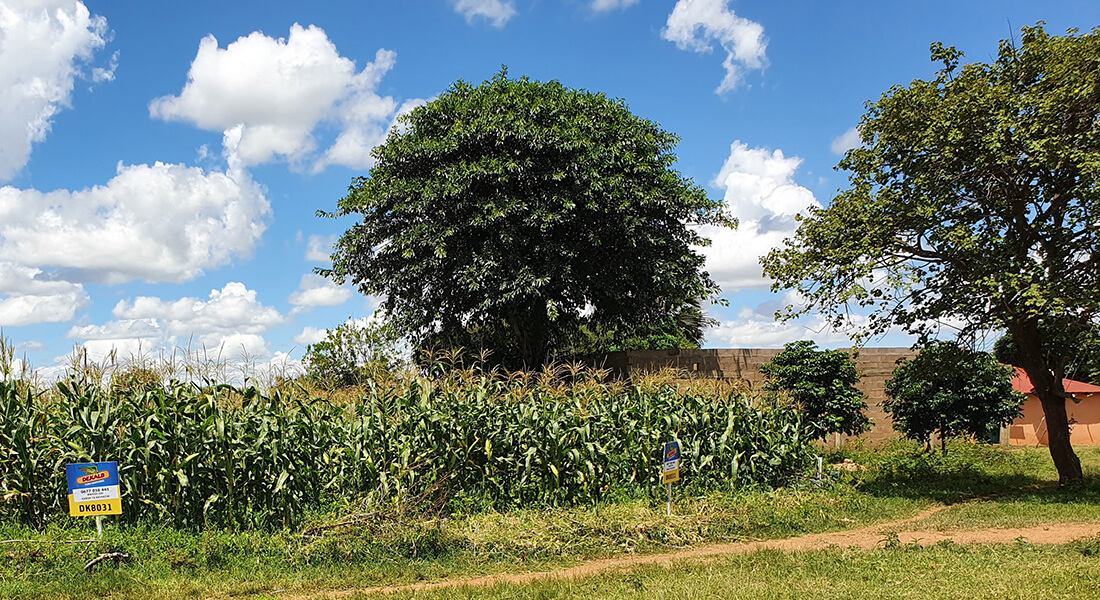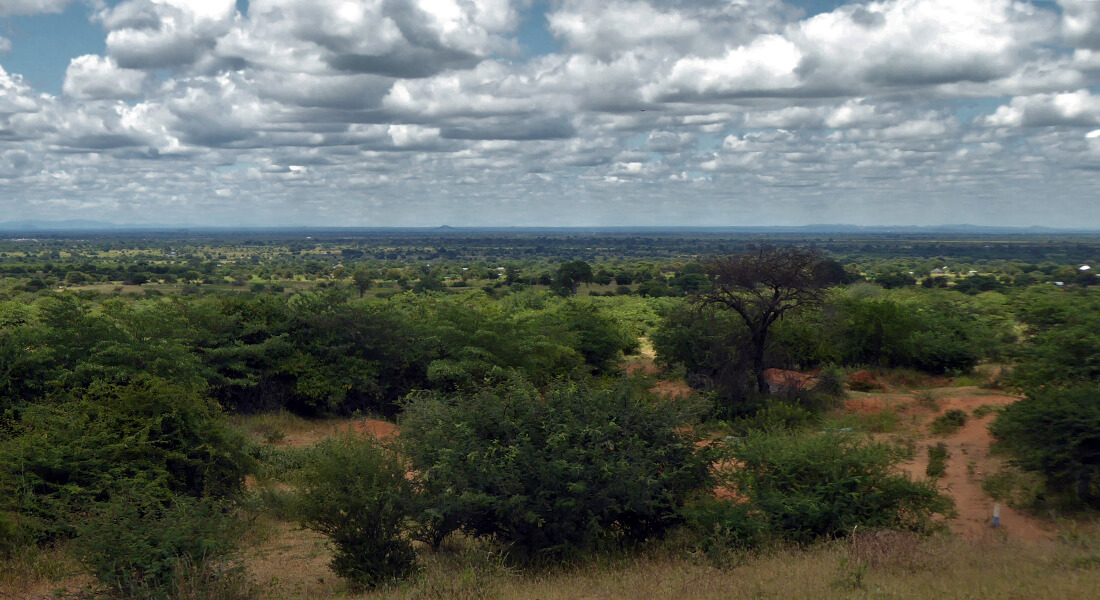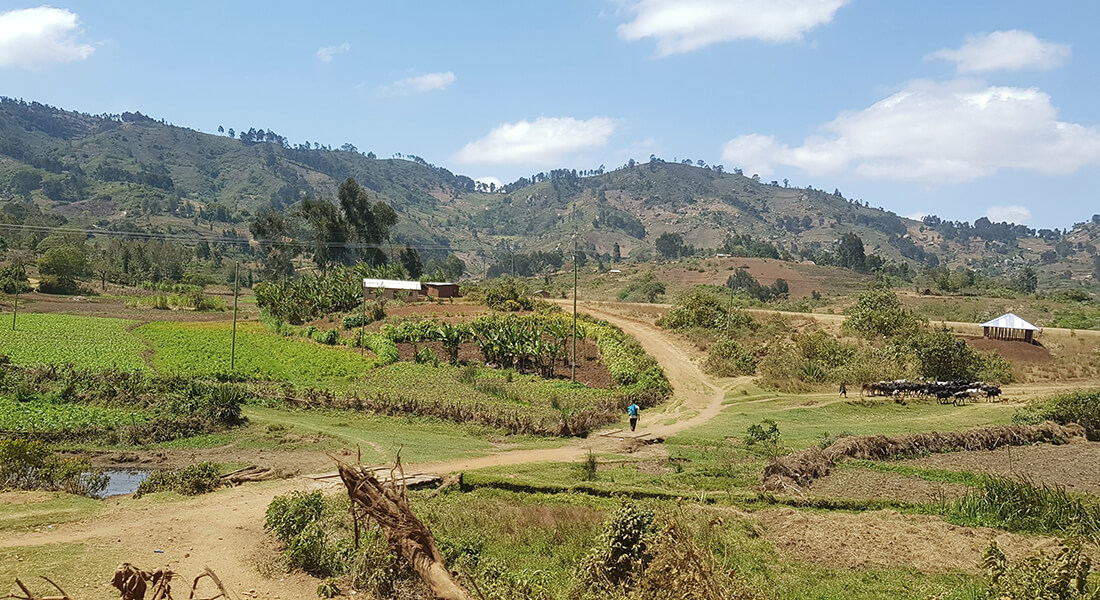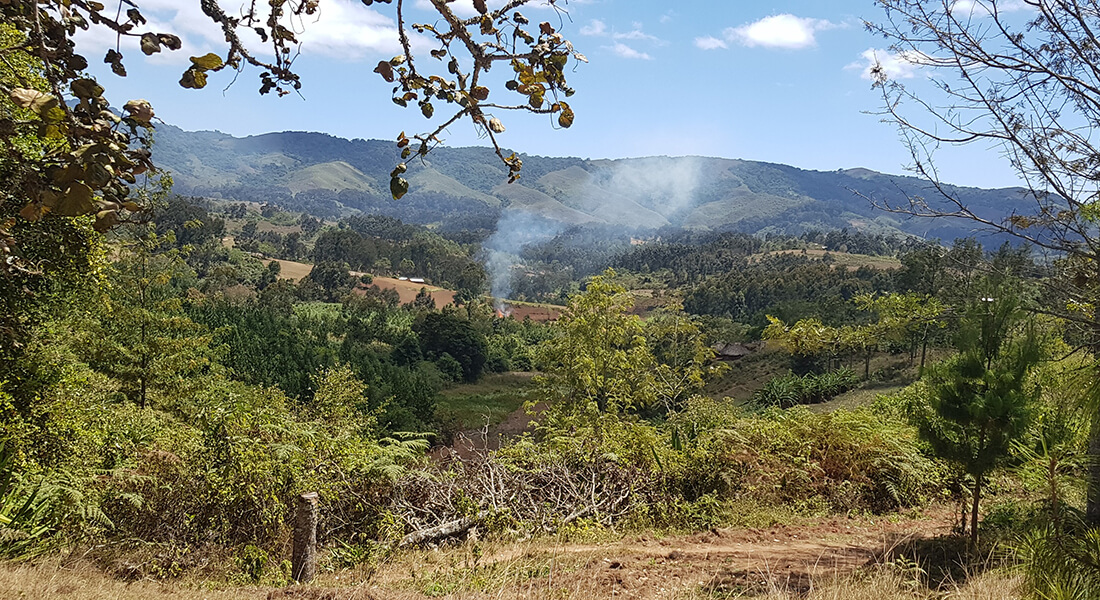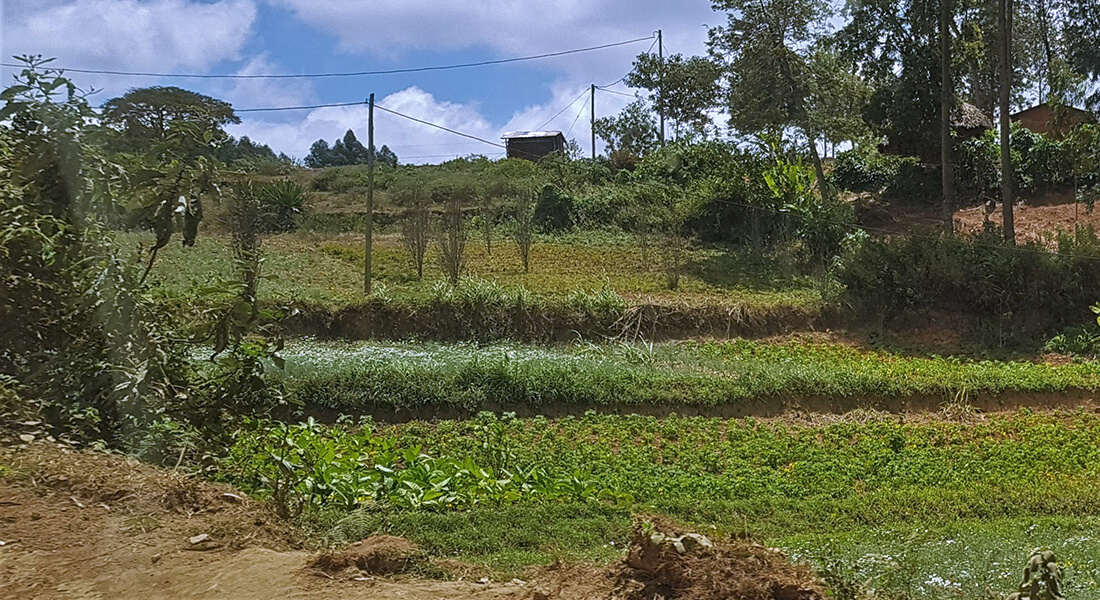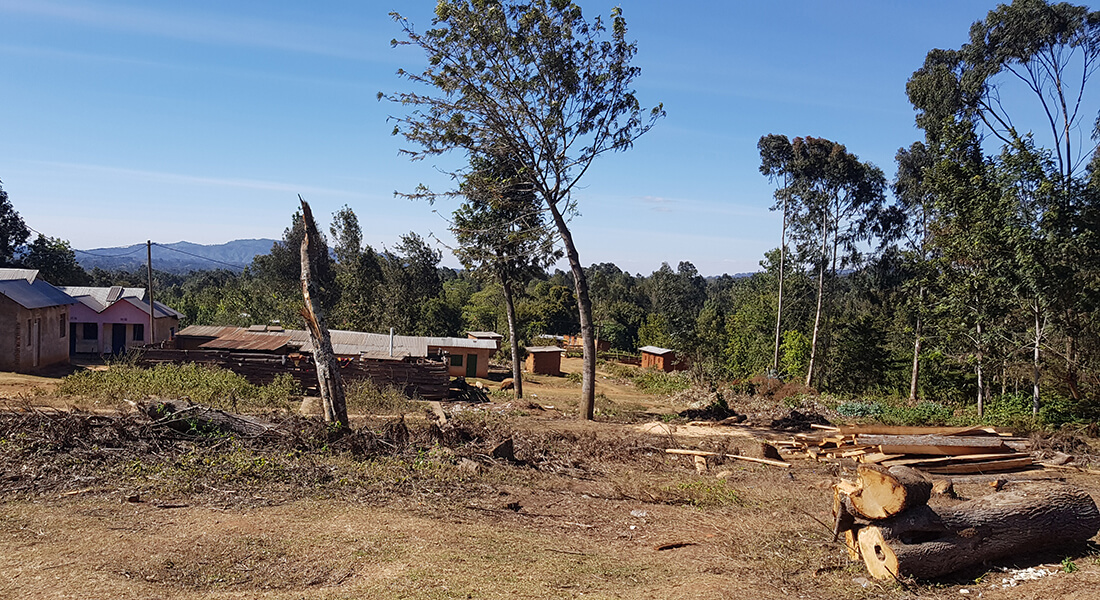The role of rural-urban linkages for enhanced climate resilience in rural Tanzania’ (RUL4CLI)
The project will undertake a comparative analysis of climate change adaptation (CCA) strategies and policies in two agro-climatic regions in Tanzania.
In each region, two research settings will be studied: one village in the rural hinterland of a small town, with good access to urban services and markets, and one village in a more remote setting with less access to urban services.
Enhancing climate resilience is a complex challenge, influenced by multiple natural, social and economic factors. In rural Tanzania, specific contexts influence the livelihood strategies and opportunities and through that, the capacity of individuals and communities to enhance their climate resilience.
The three central hypotheses of RUL4CLI are:
Firstly, that strong “rural-urban linkages” (RUL) may enhance climate resilience of rural communities, but this is highly influenced by the climatic, socio-economic and physical context. Secondly, the capacity to benefit from climate resilience-building initiatives and adaptation strategies varies strongly between demographic groups, and special attention must be paid to youth and women to develop inclusive climate change (CC) policies. Thirdly, effective and inclusive CC policy formulation and implementation requires strategies for integrating a diversity of stakeholder interests across governance levels. Arising from these hypotheses, the overall objective of the project is to support sustainable rural development by increasing our understanding of the interconnections between RUL, climate resilience of rural communities, their choice of CCA response and the implications for CC policy formulation and implementation.
interconnections between CC vulnerability of rural communities from a gender and generational perspective in selected rural settings, their choice of CCA response and the implications for CC policy formulation and implementation. This will be achieved through three interrelated objectives, which aim to:
- Explore the interconnections between RUL and climate resilience of rural communities with differentiated access to small towns.
- Identify barriers and opportunities for different socio-economic groups’ increased access to CCA initiatives, in particular youth and women.
- Support inclusive CC policy formulation (national level) and implementation (district level).
The hypotheses will be tested and overall research objectives achieved by the use of sub-objectives and research questions (See Figure 1).
The project is innovative in its choice of research focus, by extending past research on small-towns in Tanzania to include their multi-dimensional impacts on the wider countryside, as expressed by increased rural-urban linkages and its impact on climate resilience of rural communities. Furthermore, the use of the Pamoja Voices tool, designed for youth and gender responsive climate analysis, developed and piloted by team members in Tanzania will allow us to apply and further develop the tool in new socio-economic settings. Ultimately, the outputs will contribute with ways to align climate change adaptation (CCA) policies at different governance levels to improve implementation effectiveness and inclusiveness.
The overall outcome will be a better understanding of the role of RUL in supporting enhanced climate resilience in rural TZ.
- The project will contribute to conceptualisations of livelihood diversification, RUL and climate resilience, and inclusive CCA policy formulation.
- We will use this knowledge to inform the ongoing development of Tanzania’s National Adaptation Plan with a view to develop inclusive policy options.
- Three Ph.D. projects link the three objectives and the PhD students (enrolled at UDSM) will be co-supervised by Danish and TZ partners and will increase TZ research capacity after completion. The Ph.D. topics are: 1. Livelihood adaptation to CC, 2. Rural-urban linkages and CC, 3. Vulnerable groups and CCA.
WP outputs will include three PhD degrees at UDSM, at least nine co-authored scientific papers published in peer-reviewed journals, at least three policy briefs, at least three four project reports, annual stakeholder workshops, a national policy dialogue.
Publications
2024
The role of rural-urban linkages for enhanced climate resilience in rural Tanzania (RUL4CLI):
RUL4CLI Stakeholder Workshop - St. Gaspar Conference Centre , Dodoma, Tanzania., Dodoma, Tanzania, United Republic of
Duration: 22 Aug 2024 → 22 Aug 2024
2022
The role of rural-urban linkages for enhanced climate resilience in rural Tanzania:
Proceeding from the Launching of Capacity Building Project ‘The role of rural-urban linkages for enhanced climate resilience in rural Tanzania (RUL4CLI)’
A Narrative Report of a pilot study in rural Mbulu Town and Itigi Councils, Tanzania:
The Role of Rural-Urban Linkages for Enhanced Climate Resilience (RUL4CLI), University of Copenhagen and University of Dar Es Salaam
Researchers
University of Copenhagen
| Name | Title | Department | |
|---|---|---|---|
| Torben Birch-Thomsen | Ass.Prof. | Dept. of Geosciences an Natural Resource management | |
| Søren Bech Pilgaard Kristensen | Ass.Prof. | Dept. of Geosciences an Natural Resource management | |
| Anne Gravsholt Busck | Ass.Prof. | Dept. of Geosciences an Natural Resource management | |
| Thomas Lundhede | Ass.Prof. | Dept. of Food and Resource Economics |
University of Dares Salaam
| Name | Title | Department | |
|---|---|---|---|
| Pius Zebbe Yanda | Prof. | Institute of Resource Assessment | |
| Victoria Hippolite Moshy | Lecturer, PhD | Institute of Resource Assessment | |
| Noah Makula Pauline | Senior Lect. PhD | Institute of Resource Assessment | |
| Edmund Mabhuye | Lecturer, PhD | Institute of Resource Assessment | |
| Rosemarie Mwaipopo | Ass. Prof. | Department of Sociology and Anthropology |
International Institute for Environment and Development
| Name | Title | Department | |
|---|---|---|---|
| Samuel Green | Senior Researcher | IIED- Climate Change Group | |
| Emilie Beauchamp | Senior Researcher | IISD – Resilience Program |
Funded by:
RUL4CLI is funded by a grant from Danish International Development Agency (DANIDA)
Project: The role of rural-urban linkages for enhanced climate resilience in rural Tanzania’
(RUL4CLI ) - Project file no.: No.21-23-KU.
Period: April 2022 to March 2027
 |
 |
 |

